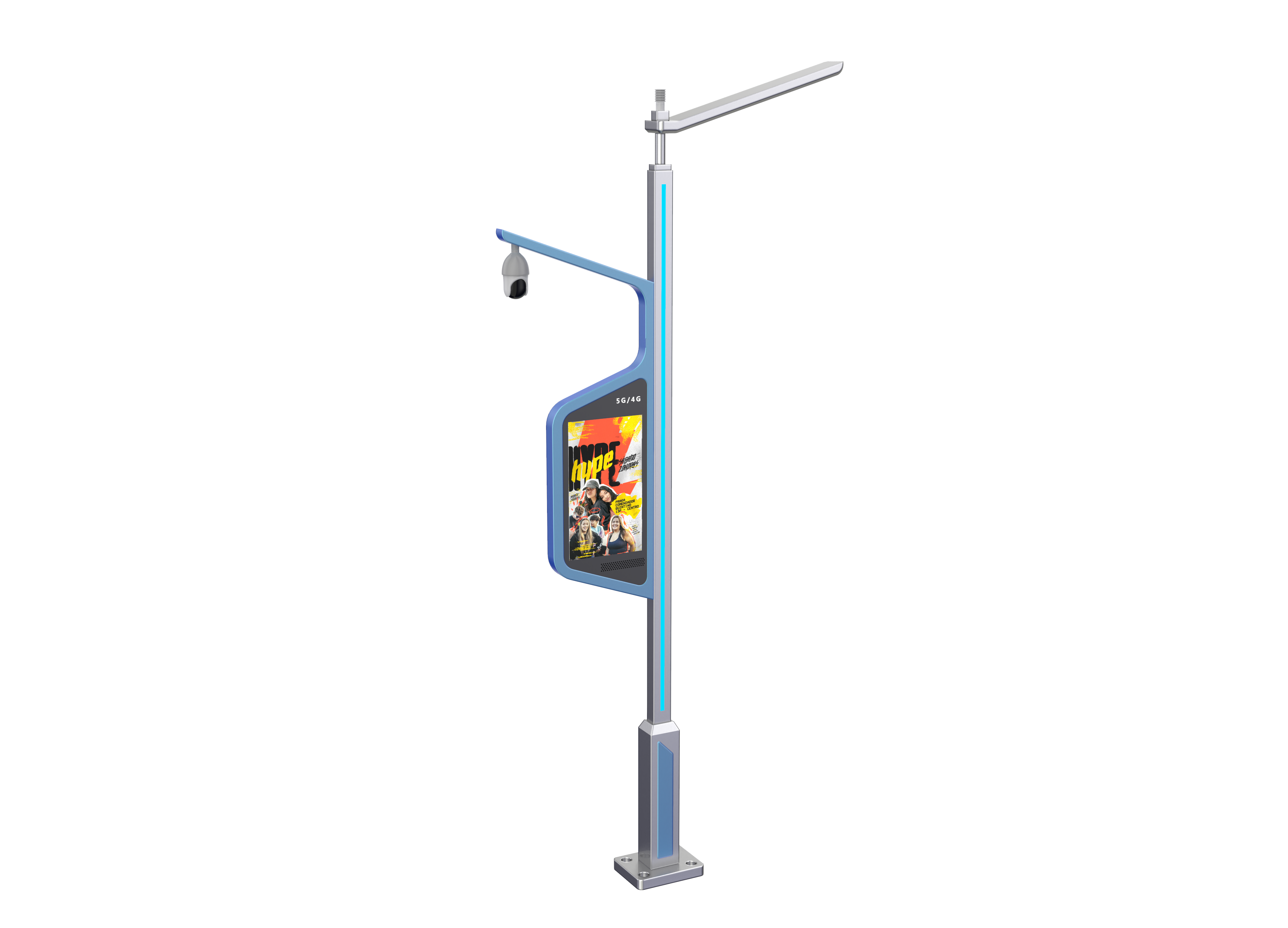A smart light pole, integrating lighting, surveillance, communication, environmental monitoring, and more, is becoming an essential infrastructure in modern cities worldwide. With advancements in 5G, IoT, and AI, smart light poles have transformed from simple lighting fixtures into vital data-collection and service hubs for smart cities. This article will explore the functionality, application scenarios, and impacts on urban management brought by smart light poles.
1. Multifunctional Capabilities of Smart Light Poles
Smart light poles are “smart” because they combine various features and devices, including:
Lighting Management: Smart control systems enable light poles to adjust brightness automatically based on time, weather, and traffic, promoting energy conservation. Remote monitoring also allows city managers to efficiently manage lighting networks.
Surveillance and Security: Equipped with HD cameras, sensors, and infrared devices, smart poles can provide 24/7 video monitoring and security detection. With facial recognition and behavioral analysis, they effectively enhance urban security and provide safer environments.
Environmental Monitoring: Sensors on smart poles can monitor air quality, noise levels, temperature, and humidity, providing real-time environmental data to assist environmental agencies in addressing pollution and climate concerns.
5G Base Stations and Wireless Networks: Smart light poles often support 5G base station installations, ensuring high-speed network coverage and supporting IoT devices and autonomous driving.
Information Dissemination: Display screens on smart poles can broadcast emergency alerts, traffic updates, and public service announcements, improving communication efficiency and transparency.

2. Applications of Smart Light Poles
Smart light poles play a crucial role across various sectors of city management. Key application scenarios include:
Smart Traffic Management: In busy roads and high-traffic areas, smart light poles’ traffic monitoring and pedestrian detection capabilities facilitate real-time data collection and analysis. By leveraging AI algorithms, they help predict and reduce congestion, optimize traffic lights, and improve efficiency.
Smart Industrial Parks: In industrial zones, technology parks, and commercial complexes, smart poles provide Wi-Fi coverage, security monitoring, and parking management, enhancing operational efficiency and offering convenience to enterprises and customers.
Smart Communities: In residential areas, smart poles offer safety and convenience. Surveillance systems monitor community activities in real time, while information displays allow property managers to quickly share notices, increasing management efficiency.
Emergency Response: In the event of natural disasters or emergencies, smart poles can broadcast alerts and guide people to safety. Environmental sensors provide real-time disaster data, helping authorities respond more effectively.
3. Impact of Smart Light Poles on Urban Management
The widespread adoption of smart light poles is transforming city management in several ways:
Data-Driven Decision-Making: Smart light poles, serving as the “perception front end” of cities, collect and transmit vast real-time data, supporting informed decision-making for government agencies. For instance, analyzing air quality data allows authorities to implement pollution control measures, while traffic data helps optimize road designs.
Enhanced Public Services: The multifunctional nature of smart poles enables more flexible public service delivery, saving resources and improving efficiency. Smart lighting not only reduces energy bills but also minimizes maintenance costs.
Supporting Smart City Development: Smart light poles are a core component of smart cities, supporting the integration of 5G, IoT, and intelligent services. By connecting data, services, and residents, they create a robust urban network that supports future applications, such as autonomous driving, smart homes, and digital healthcare.
Smart light poles are essential to the development of smart cities, offering vast potential in urban infrastructure. They are not just light poles but multifunctional service stations connecting data, services, and people. With ongoing advancements in technology and cost reductions, smart light poles will continue to be implemented across more cities and use cases, providing efficient, secure, and eco-friendly urban experiences for residents and powerful data-driven tools for city managers.








 Share to:
Share to: